Description
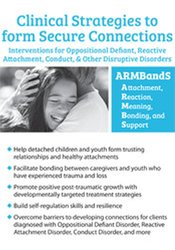
-
Dr. Janene Donarski – Clinical Strategies to form Secure Connections: Interventions for Oppositional Defiant, Reactive Attachment, Conduct, & Other Disruptive Disorders
- Faculty:
- Dr. Janene Donarski
- Duration:
- 5 Hours 34 Minutes
- Format:
- Audio and Video
- Copyright:
- Nov 10, 2017
Description
Positive Strategies for Attachment Issues that Build Trust and Connection:
Many children temporarily or permanently lose connection with their parents through foster care or adoption, death, separation, divorce, parental imprisonment, or even military tours of duty.
In the short run, emotional dysregulation can lead to behavior problems and school issues, and in the long run disrupted attachment can leave children and teens at risk for substance abuse, criminality, homelessness, poor physical and psychological health, and even early mortality. Parental loss and the trauma associated with it can make it difficult for youth to form bonds in a new relationship.
Dr. Janene Donarski, PhD, LP, LMSW, will help you learn how to identify and work with attachment, reaction, meaning, bonding, and support, (ARMBandS), a strategy she developed to address the emotional difficulties of many foster and adopted children, as well as other youth who have endured parental separation and who are unable to form secure attachments. Dr. Donarski will lead you in an in-depth exploration of ways to help children and youth experience and accept affective attunement, in an effort to encourage a secure attachment that can lead to emotional connectedness and behavioral change.
This recording is a must for all mental health professionals who want to learn clinically tried-and-true approaches for facilitating emotional reparation and recovery from trauma, as well as strategies for working with children and youth who have been diagnosed with Oppositional Defiant Disorder, Conduct Disorder, Reactive Attachment Disorder, Disinhibited Social Engagement Disorder, Post-Traumatic Stress Disorder, and/or Adjustment Disorder. Dr. Donarski will explore the topics of parental loss, trauma, building trust, self-regulation, resilience, and post-traumatic growth in an interactive hands-on workshop that will prepare you to promote secure attachments between caregivers and the children and teens that you serve.
Handouts
| Manual – Clinical Strategies to form Secure Connections (8.21 MB) | 69 Pages | Available after Purchase |
Outline
ARMB and S: STRATEGY TO HELP YOUTH WHO HAVE EXPERIENCED TRAUMA AND LOSS
- Attachment
- Reaction
- Meaning
- Bonding
- Support
HOW ARMB and S CAN HELP CHILDREN AND YOUTH DEVELOP:
- Trust
- Self-regulation
- Bonding (interpersonal connectedness)
- Resilience
- Post-traumatic growth
ATTACHMENT: HEALTHY vs UNHEALTHY
- What is attachment?
- How do attachment and emotional development intersect?
- Secure attachment
- Disrupted attachment
- Loss and trauma
- Abandonment
- Techniques that empower caregivers to set the stage for attunement and attachment
- Interactive attachment skill builder
REACTION: WHAT DO THEIR BEHAVIORS TELL US?
- The Skinner box
- Consistency
- Re-visit the developmental milestones
- Accessibility
- Responsiveness
- Emotional connectedness and bonding
- Evidence of care technique success
- Interactive skill builder
MEANING: CREATING/RECREATING POSITIVE SELF
- Assessment – effective, comprehensive, reliable
- What’s the meaning of life (and why does it matter)?
- Elementary age youth
- Middle school age youth
- High school age youth
- How to demonstrate that they have meaning to you
- Interactive skill builder: empowering caregivers to demonstrate meaning
BONDING: DEVELOPMENT OF INTERPERSONAL CONNECTEDNESS
- Setting the stage to build trust
- Need fulfillment
- Developmentally appropriate strategies for bonding
- 0-3
- 3 years and older
- Adolescents
SUPPORT: DEVELOPING RESILIANCE AND GROWTH
- Parental loss and grief
- Trauma
- Preventing PTSD in children
- Self-regulation skills and emotional reparation
- Resilience
- Developmentally targeted post-traumatic growth
- Strategy for youth with:
- Oppositional Defiant Disorder
- Post-Traumatic Stress Disorder
- Reactive Attachment Disorder
- Disinhibited Social Engagement Disorder
- Conduct Disorder
- Adjustment Disorder
- How to support ongoing attachment and post-traumatic growth
Faculty

Dr. Janene Donarski, PH.D., L.P., LMSW, CCATP Related seminars and products: 4
FTDC
Janene M. Donarski, PhD, LP, LMSW, CCATP, is a fully licensed clinical psychologist and licensed master social worker who works in counseling therapy as well as psychological testing for mental health issues. Dr. Donarski specializes in neuropsychological assessment of children, adolescents, adults and geriatric populations including head injury, organic issues, emotional and complex behavior disorders.
Dr. Donarski works extensively with anxiety issues including panic, hypervigilance and PTSD. She trains others in techniques of relaxation, reduction of fear, and exposure therapies to reduce triggers and symptoms in daily life. She assists in testing within the academic areas including ADHD, learning disabilities and autism for IEPs and/or 504 plans/behavior plans. Dr. Donarski works with all populations in counseling/therapy, including individual, marital/ couple, family, LGBTQ, and group counseling.
She is a certified EMDR Level II counselor, as well as a certified hypnotherapist and practitioner for Neuro-Linguistic Programming and Time Line Therapy®. Dr. Donarski is also experienced in working with victims of violence, foster care/adoption issues, sexual issues, as well as those who are seeking sex offender treatment. She often works with attorneys as a forensic psychologist/expert witness for legal cases involving custody, guardianship, social security benefits, and criminal cases.
Dr. Donarski has spoken on a variety of mental health issues, including somatic ailments, behavioral disorders and mental health concerns in the geriatric population.
Speaker Disclosures:
Financial: Janene Donarski has an employment relationship with Family Therapy & Development Centers, Inc. She receives a speaking honorarium from PESI, Inc.
Non-financial: Janene Donarski is a member of the American Psychological Association; Michigan Psychological Association; and National Association of Social Workers.
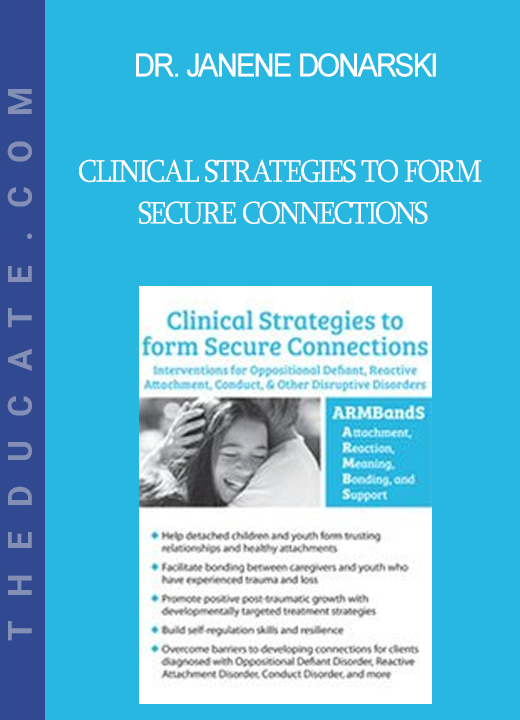

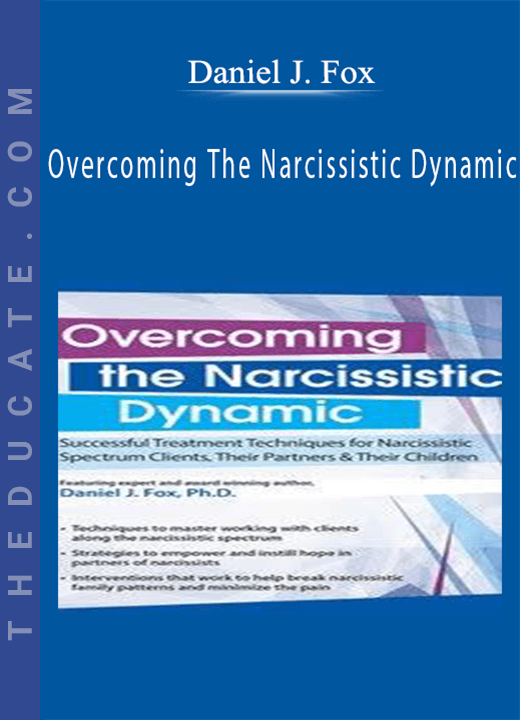
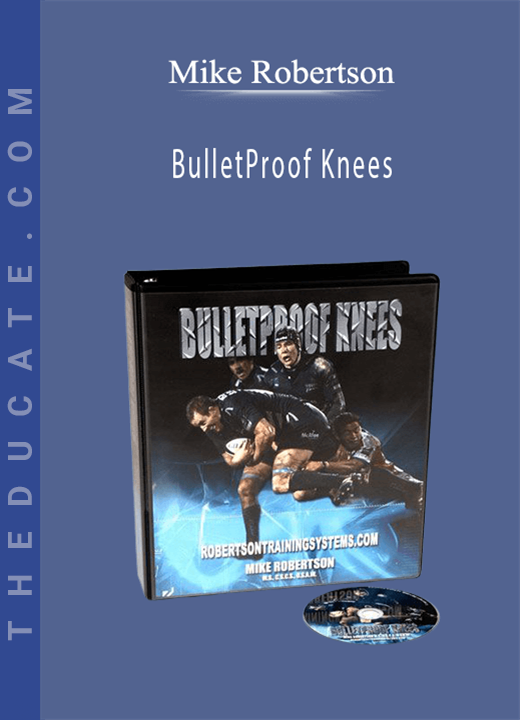

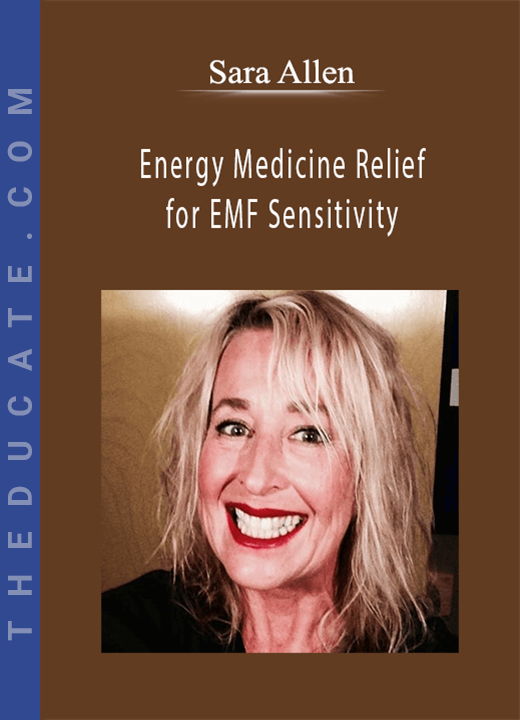
Reviews
There are no reviews yet.